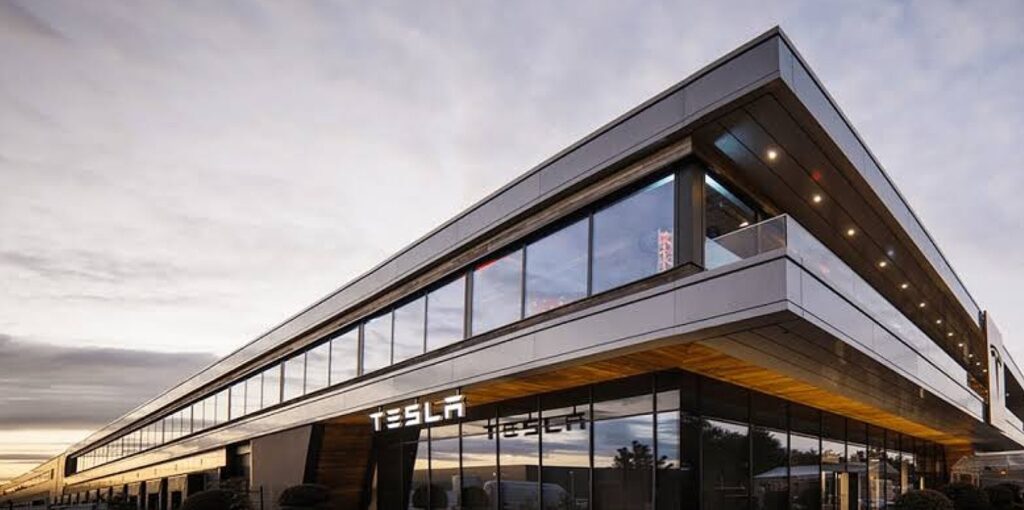Elon Musk, the CEO of Tesla, and President Donald Trump recently engaged in a discussion about Tesla’s potential entry into the Indian market, which could involve the construction of a new Gigafactory in the country. This dialogue sheds light on the challenges and opportunities that Tesla faces in India.
Negotiations between Tesla and India have been ongoing for several years, with the main hurdle being the high import duties imposed on imported vehicles in the country. Tesla has expressed interest in testing demand in India by shipping vehicles from its Gigafactory in Berlin, Germany. However, the 100 percent import duties levied by India make this approach impractical, as it significantly raises the price of the vehicles.
India has proposed reducing or eliminating import duties for Tesla if the company commits to building a factory in the country. While this would eliminate the need for a demand test, it has been a sticking point in the negotiations between Tesla and India. Recent discussions between Musk and Prime Minister Narendra Modi have led to Tesla starting to hire Sales and Service advisors in India, indicating progress in the talks.
During a conversation with President Trump, Musk highlighted the challenges posed by high import duties in India and the potential need for a Gigafactory in the country to circumvent these tariffs. President Trump suggested using a reciprocal tariff strategy to pressure India to lower its duties, emphasizing the need for fair trade practices.
The differing perspectives of Musk, President Trump, and Modi reflect the complexities of the negotiations. Musk sees India as a significant market for Tesla’s vehicles, which could boost the company’s annual delivery figures. Modi is interested in attracting Tesla to India to stimulate the economy, aligning with the country’s “Make In India” campaign that promotes domestic manufacturing. President Trump prioritizes domestic manufacturing in the U.S. and is keen on ensuring a fair deal for American companies operating in foreign markets.
The varying interests of the stakeholders involved may prolong the negotiations between Tesla and India. However, the potential benefits of Tesla’s entry into the Indian market make it a compelling opportunity for all parties involved. As discussions continue, the outcome of these negotiations will shape Tesla’s future in India and its global expansion strategy. The impact of climate change on global food security is becoming increasingly evident as extreme weather events, such as droughts, floods, and heatwaves, disrupt agricultural production worldwide. Climate change is causing shifts in temperature and precipitation patterns, leading to changes in the availability of water and the suitability of land for farming.
One of the most significant challenges posed by climate change is the threat it poses to food production. As temperatures rise, crop yields are expected to decrease due to heat stress, changes in precipitation patterns, and the increased prevalence of pests and diseases. In some regions, such as sub-Saharan Africa and South Asia, where agriculture is heavily dependent on rain-fed irrigation, the impact of climate change on food production could be particularly severe.
Another major concern is the potential for climate change to disrupt food distribution and access. Extreme weather events, such as hurricanes and floods, can damage infrastructure and disrupt supply chains, leading to food shortages and price spikes. This can exacerbate food insecurity, especially in vulnerable populations that rely on imported food or have limited access to markets.
In addition to directly affecting food production and distribution, climate change also has indirect effects on food security. For example, changes in temperature and precipitation patterns can impact the availability of key nutrients in food crops, leading to deficiencies in essential vitamins and minerals. This can have serious implications for human health, particularly in regions where malnutrition is already a significant issue.
Addressing the challenges posed by climate change to global food security will require a multi-faceted approach. This includes investing in climate-resilient agriculture practices, such as conservation agriculture and agroforestry, that can help farmers adapt to changing conditions. It also involves improving access to water resources and strengthening social safety nets to ensure that vulnerable populations have access to nutritious and affordable food.
Furthermore, efforts to mitigate climate change by reducing greenhouse gas emissions and transitioning to renewable energy sources are crucial for safeguarding global food security in the long term. By taking action to address the root causes of climate change, we can help ensure a more sustainable and secure future for food production and distribution worldwide.

